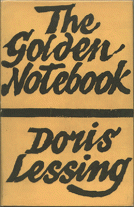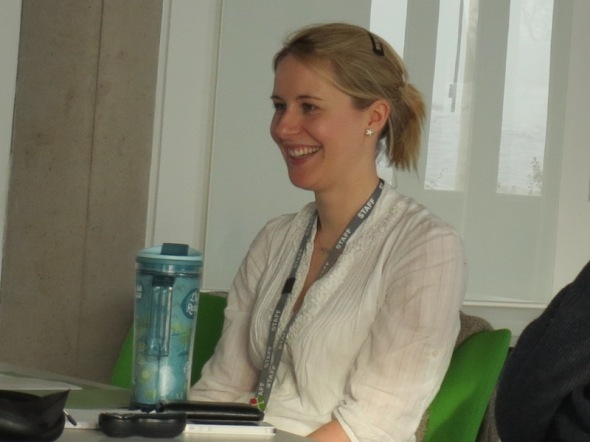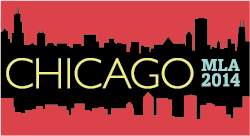calls for papers, MLA 2017
The Doris Lessing Society has posted its calls for papers for the 2017 MLA Convention in Philadelphia!
The topic of the Society’s guaranteed session is “Teaching Doris Lessing in the Twenty-First Century.” Given the changes in post-secondary education since Lessing’s canonization in the US academy with novels like The Golden Notebook, what do we teach when we teach Doris Lessing now, and how (and to whom) do we teach? This session may run in the roundtable format (briefer presentations, more discussion), depending on the number of qualified submissions. Deadline and contact details can be viewed here.
The topic of the special session the Society will propose is “Twentieth-Century Women Writers and the Formalist Turn.” This panel proposes to ask, how will the “formalist turn” in literary studies affect or shape the interpretation of, and new scholarly work on, twentieth-century women writers? Has it already? The “formalist turn” is a topic alluded to often in recent discussions of the state of the field, with the sense that a shift is occurring, taking literary study away from the historicist and contextualist styles of interpretation that have been dominant for the past several decades. The status of this turn, and whether it’s anything new, are naturally in question. Still, at this juncture it seems worth thinking about how such a turn might transform or shape the study of women writers in particular, in light of how notions of form and formalism have typically been gendered. Doris Lessing’s work, for example, is often criticized for a supposed lack of attention to formal concerns; this then is an occasion to wonder how she, like other women writers, will fare as (or if) the canon of modern writing is reshaped along formalist trajectories. Deadline and contact details can be viewed here.
The topic of a collaborative session the Society will propose with the Margaret Atwood Society is “Boundaries of Life: Ageism and Aging in Works by Margaret Atwood and Doris Lessing.” This session is inspired by the MLA’s 2017 Presidential Theme, “Boundary Conditions.” By focusing on ageism and aging in the works of Atwood and Lessing, two of the twentieth century’s most prolific and influential women writers, this panel aims to explore the ways these writers depict the passing of time in relation to life experiences and self-consciousness. Some questions papers might answer include: What does it mean to come of age? How do age and the aging process affect how we see ourselves? When and how does one become old? How does age discrimination shape societies and individuals? In addition to examining individual works, papers may also look at the authors’ careers more broadly and discuss how their treatment of aging as a theme has changed as they themselves aged. Deadline and contact details can be viewed here.
The Golden Notebook Reading Guide Now Up!
Robin Visel has provided us with a reading guide for The Golden Notebook. Her breakdown incorporates useful historical and biographical contextual information, a look at the various novel structures, and some tips for readers.
If you haven’t already checked out our Book Club Readers section, it offers Doris Lessing enthusiasts a place to start discussions and contribute to the society. We currently have two guides up, each tackling the business of reading in separate ways. As mentioned earlier, our newest addition by Robin Visel uses background information and structural explanation to help readers, and Tonya Krouse’s guide for The Good Terrorist provides a series of questions to engage readers with the material.
We are always appreciative of new reading guides and discussion from Doris Lessing readers!
And the winner is… Kerry Myler!
Kerry Myler wins the Doris Lessing Society Graduate Student Essay Prize!
Congratulations, Kerry!
Kerry Myler is a lecturer in English at Newman University College, Birmingham. Her PhD examined Doris Lessing’s engagement with R. D. Laing and she is currently reworking this into a monograph on Lessing, the anti-psychiatry movement and gendered embodiment. Kerry is an executive member of the Contemporary Women’s Writing Association.
Abstract of Kerry’s winning paper:
This paper reads narratives of motherhood in Lessing’s The Four-Gated City (1969) in terms of R. D. Laing’s The Politics of Experience (1967). I argue that Lessing uses Laing’s work to rethink discourses of motherhood and madness. These are particularly important because of their fundamental role in maintaining the social order. Discourses of mothering are concerned with the social inheritance of ways of being (that is, ways of ensuring adequate adaption to and acceptance of a modern “mad” world); discourses of madness are concerned with regulating and policing intelligible ways of being (that is, excluding or reabsorbing those who have failed to adapt and accept this “mad” world). The Four-Gated City represents madness and mothering as intimately bound up with one another and the text radically reassesses the “nature” of both in order to imagine a new and better future for humanity. However, unlike Laing, Lessing cannot imagine these changes taking place within existing social structures. The Four-Gated City demonstrates that Laing’s inattention to matters of gendered embodiment, including his conceptualising of the mad as “gender neutral”, limits the usefulness of his theories for the madwoman. In Lessing’s novel the potential of humanity is repeatedly shown to be realised only when the existing social order, including the sex/gender system, is evaded and, ultimately, destroyed.
MLA Convention, Chicago 2014: Doris Lessing Society CFPs
MLA Convention, Chicago
9 – 12 January, 2014
Call for Papers: Emigres, Expats, and Exiles in Postwar London
This is a call for papers for the Doris Lessing Society guaranteed panel at the 2014 Convention in Chicago from 9 – 12 January, 2014.
When Doris Lessing returned to Britain in 1950 she joined an influx of immigrants to London. Comparative studies welcomed. 250 word abstracts and brief bios by 14 March 2013; Alice Rachel Ridout (alice.ridout@algomau.ca or DorisLessingSociety@gmail.com)
Call for Papers: Doris Lessing and D. H. Lawrence
This is a call for papers for a joint allied association panel at the 2014 MLA Convention in Chicago from 9 – 12 January, 2014.
Lessing’s reading of “Lady Chatterley’s Lover” as an anti-war novel suggests important intertextual relations between these authors. 250-word abstracts and bio by 10 March 2013. Alice Rachel Ridout (dorislessingsociety@gmail.com) and Holly Laird (holly-laird@utulsa.edu).
This is a call for participation in a roundtable the Doris Lessing Society is proposing for the 2014 MLA Convention in Chicago from 9 – 12 January, 2014.
What challenges and opportunities do learned society journals face in the twenty-first century? Bios and 250-word abstracts for roundtable talks by 11 March 2013; Alice Rachel Ridout (alice.ridout@algomau.ca or DorisLessingSociety@gmail.com)




